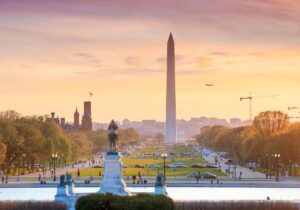In time for Independence Day, on July 3 The Washington Post reported on the ongoing restoration of hundreds of ancient Buddhist relics by the National Museum in Afghanistan. They were smashed by the Taliban regime, which more infamously in 2001 dynamited the world’s two largest Buddha statues, from the Sixth Century, exciting global outrage.
Taliban Islamists objected to Buddhas, large or small, as pagan idols, but also as unwanted reminders of Afghanistan’s pre-Islamic past. Totalitarian movements, religious or secular, pretend that meaningful history begins with their rule or its imagined foreshadowings.
Deep in the Post article is this notable info:
The project is part of a larger program funded by the U.S. State Department to help the museum restore historical artifacts. The U.S. government has spent about $47 million on Afghan preservation and related projects since 2002. U.S. officials estimate the total cost of restoring the Hadda sculptures to be about $785,000, and so far, funds have been allocated only through 2020.
So mostly Christian America is funding restoration of Buddhist relics in an overwhelmingly Muslim country. No doubt the Taliban, from its bloodthirsty mountain camps, is displeased. Most Afghans likely are unaware and likely are indifferent. The same is true for Americans, though doubtless a few would see the expense as one more example of American naïveté, extravagance and exploited idealism. Some USA Christians might share the Taliban’s view of pagan statues.
But this story was appropriate for Independence Day because it reflected a deep and intractable aspect of American character, which is compelled to seek to right the world’s wrongs, in small and large ways. Overthrowing the Taliban and trying with many billions of dollars to rebuild Afghanistan across two decades reflects this American compulsion writ large. But spending $785,000 on restoring Buddhist relics no less reflects the same impulse.
Nearly all Americans across the spectrum, except the most cynical isolationists, share some part of this crusading, semi-messianic impulse. Some abhor the military interventions yet demand the humanitarian interventions. Others claim they abjure both yet still, if unconsciously, assume America by example or attitude will somehow reshape the world towards some benevolent purpose.
Many dispute that a country like Afghanistan can be democratized in any meaningful fashion. Yet whatever regime prevails there, restoring little Buddhas and other relics of Afghanistan’s myriad history is laudable and a needed witness to the absolutists who would erase that history.
Perhaps, though God forbid, the Taliban or some equally dreadful force will again ascend in Afghanistan, once again murdering, torturing, tormenting, repressing and smashing. The Buddhist relics once again may face destruction, amid far worse horrors. If so, will America’s exertions large and small to reshape and rebuild Afghanistan have been completely misbegotten?
The same question can be posed about another 100 other American interventions, military and humanitarian, across much of 200 years. Most can’t be called unequivocal successes or failures. Some even after many decades can’t be adequately judged, as the jury of Providence and history has not yet returned a conclusive verdict. All were motivated by mixtures of idealism, realpolitik, hubris and naïveté.
What can be said with certainty is that such interventions are almost inevitable given what America is and always has been since July 4, 1776, with religious and political antecedents much earlier. America looking only inward would no longer recognizably be America.
Theologian Stanley Hauerwas has said he disdains July 4 because it represents America’s claim to have a narrative applicable to the whole world. His disdain aside, he’s not wholly incorrect.
The challenge is to direct that intrinsic American July 4 narrative with wisdom and careful stewardship. But the narrative itself is irrepressible. And one hundred years from now America likely still will be funding the restoration of ancient figurines in faraway places.







 Sponsor a student for Christianity & National Security 2024
Sponsor a student for Christianity & National Security 2024